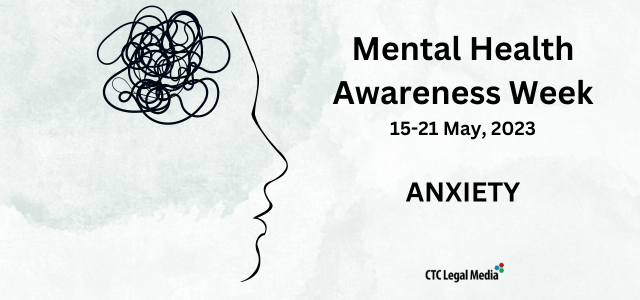 Last minute deadlines, billing targets, Friday 4pm client’s request, politics, different time zones, networking, taking time off and then coming back to five-hundred unread emails, heavy workload, expected performances, long working hours, school runs, increased mortgage rate, sick kids, aging parents, raging teenagers, friends not seen for months, Covid 19 trauma and/or distressing news coming from Ukraine.
Last minute deadlines, billing targets, Friday 4pm client’s request, politics, different time zones, networking, taking time off and then coming back to five-hundred unread emails, heavy workload, expected performances, long working hours, school runs, increased mortgage rate, sick kids, aging parents, raging teenagers, friends not seen for months, Covid 19 trauma and/or distressing news coming from Ukraine.
How did you feel reading the above few words?
To be honest, just writing them, I immediately felt a sense of unease, shortness of my breath, churning stomach and my mouth became dry. These are typical symptoms of anxiety. Anxiety is defined by UK NHS as “a feeling of unease, such as worry or fear, that can be mild or severe.” Symptoms of anxiety vary and can be both physical and/or emotional such as:
- Panic, fear
- Sleep difficulties
- Restlessness
- Impatience
- Irritability
- Dread, worrying thoughts
- Concentration difficulties
- Loss of appetite or overeating
- Muscle tensions
- Palpitations
- Nausea, dizziness
We all experience a certain level of worry or fear when facing stressful situations which could have an important impact on us (e.g., exam, presentation, interview). Some of us can also become more anxious during certain biological changes (e.g., menopause or pregnancy). While this can be extremely disturbing, it is a normal human response to what the body perceives as a threat, which usually stops once the threat has ended (flight or fight biological response). However, when such feelings of anxiety go on for a long time, are strong and/or affecting our daily life, this may become a disorder and it is necessary to reach out for medical support.
Prolonged stress can lead to anxiety disorders. Trademark professionals are often exposed to high and long-lasting stress. Although trademark work is not open-heart surgery (which I often try to remind myself), it is still all about risk assessing, anticipating the unexpected, operating under tight deadlines, for projects with serious financial consequences, working with challenging clients and in a competitive environment. Such stress can cascade down all the levels of a team. From my observations, it seems fair to say that most trademark professionals are perfectionist and high achiever individuals with very strong expectations as to what they should deliver (not to forget imposter syndrome) which certainly adds another layer of pressure and stress. Illustrating this reality of the IP world is a 2022 survey on mental health, conducted by the UK organization IP Inclusive and the charity Jonathan’s Voice, and which showed that more than one out of two IP professionals suffered from anxiety.
Anxiety can manifest itself in different aspects of our life, and stress at work can have a knock-on effect at home, and vice versa. While there are cases when medical support is needed, there are several techniques which can help us under stressful times. Regular self-checks may be useful to identify where you stand:
- How do I feel (mentally, physically, any reasons why I feel this way?)
- Am I drinking enough water and eating a balanced diet? Am I moving enough? Have I been outside? Have I been taking breaks?
- Am I connecting with my friends and family?
- Am I stressed? Why? What helped in similar situations?
And building on this, using some self-care tips to help managing anxiety:
- Talking to someone we trust or getting peer support
- Breathing exercises
- Shifting focus by practicing mindfulness or meditating
- Trying to get enough sleep
- Being creative
- Listening to music
- Spending time in nature
- Listening to reassuring thoughts
- Practicing physical exercise
- Journaling or writing down our worries
- Having a dedicated “worry time”
- Eating a balanced diet
- Looking at the bigger picture to avoid getting stuck on details
- Complementary and alternative therapies (e.g., yoga, aromatherapy, massage, reflexology, hypnotherapy)
- Spending less time on social media
We have to care for ourselves, putting our “oxygen mask” on first to be able to look after others, including our colleagues. But should this be on us only? While this will not fix all these issues, team leaders must be mindful of their influence on their team. They need to consciously create a caring and compassionate culture, leading by example. I have experienced different workplaces and I currently see first-hand, every day, the impact a caring leadership has on a team’s wellbeing and subsequently, work performances, where you know you can reach out to your manager or colleagues, that you are not alone dealing with a situation and that someone will have your back if needed. And for an anxious person like me, this makes a huge difference and not only at work.
Useful resources:
- Anxiety (lawcare.org.uk)
- Jonathans Voice – Speaking out for mental health
- Anxiety and panic attacks – Mind
- Anxiety | NHS inform
Written by Diane Silve, Senior Trademark Counsel, Mondelez International










